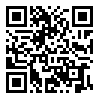BibTeX | RIS | EndNote | Medlars | ProCite | Reference Manager | RefWorks
Send citation to:
URL: http://hakim.tums.ac.ir/article-1-720-en.html
Keshavarz Z1 (MD), Simbar M * 1 (PhD), Ramezankhani A2 (PhD)
1 Department of Midwifery and Reproductive Health, School of Nursing and Midwifery,
Shahid Beheshti University of Medical Sciences, Tehran, Iran
2 Department of Health, School of Public Health,
Shahid Beheshti University of Medical Sciences, Tehran, Iran.
Received: 1 May 2010, Accepted: 2 Oct 2010
Abstract
Introduction: Poor Nutrition is a risk factor of chronic diseases which result in increasing the cost of treatments, increasing employee’s leave of absence and finally an ineffective labor. This research was designed to understand the effective factors on nutritional behavior of female workers as a base for further trainings.
Methods: This research is a part of a sequential mixed method designed research. 70 women aged 20-45 years who work in industrial factories were chosen by purposeful sampling with maximum diversity and participated in focus group discussions. Data was analyzed using content analysis method.
Results: Results show that female workers had relatively good knowledge and attitude about healthy nutrition. Paying attention to taste of spouse and children was the most important subjective norm of women. Imitation of mother’s habit and the effect of mother in taste making in family is another subjective norm in female workers. Women also mentioned the impact of socio-cultural factors such as body image and community norms as a subjective norm that affects nutrition behaviors. Limited time and place were the most important barriers of healthy nutrition. Results showed insufficient self-efficacy and limited power of planning in female workers in addition few women intended to have a healthy nutrition behavior.
Conclusion: Nutritional habits of female workers are affected by nutritional information, access to food, preference and socio-cultural believes prevailing in the community. Educating female workers about nutritional facts can upgrade nutritional behavior of the whole family.
Key words: Behavior Nutrition Assessment Female Workers Theory of Planned Behavior Self-Efficacy
Hakim Research Journal 2010 13(3): 199- 209.
* Corresponding Author: Department of midwifery and reproductive health, School of Nursing and Midwifery, Vali-Asr St, Tehran, Iran. Tel/fax: +98- 21- 88202516, Email: msimbar@yahoo.com
Received: 2011/02/23 | Published: 2010/10/15
| Rights and permissions | |
 |
This work is licensed under a Creative Commons Attribution-NonCommercial 4.0 International License. |





